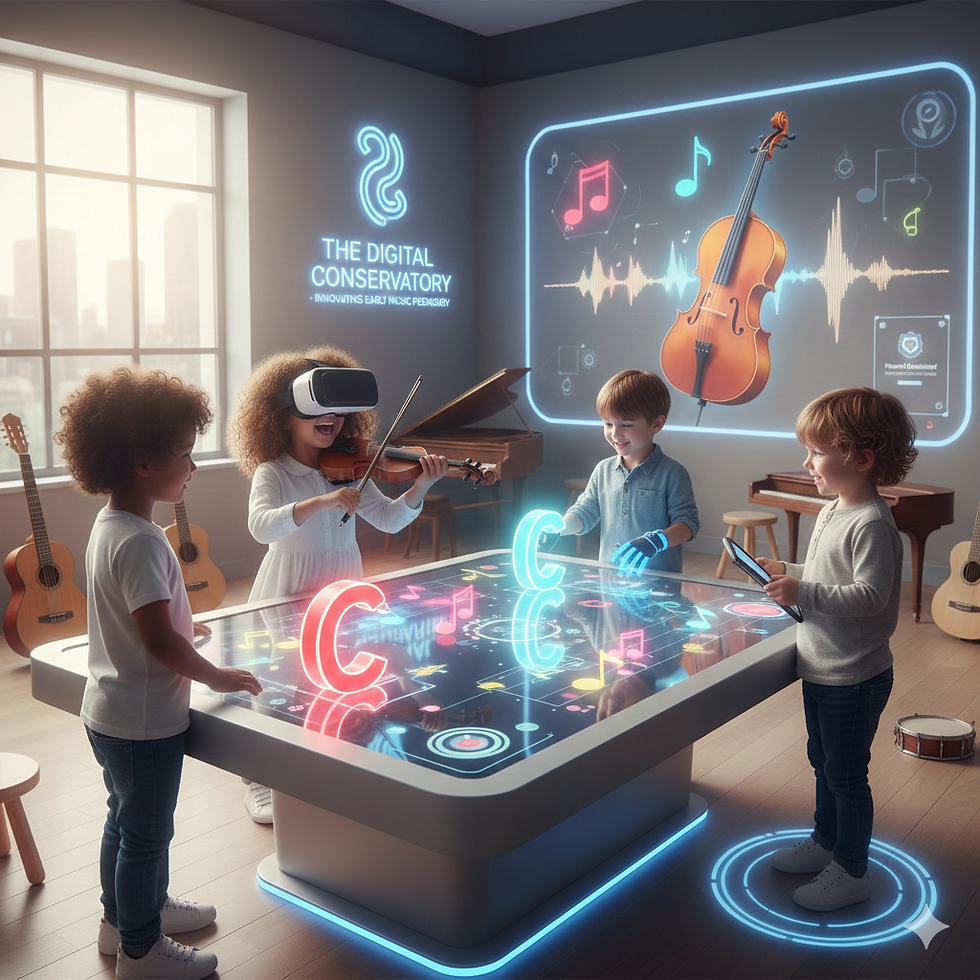"Find Deeper Meaning in Music: An Integration Roadmap"
- May 13, 2025
- 3 min read
Updated: May 22, 2025
Ever feel like your music learning exists in a vacuum? You practice scales, learn chords, maybe even tackle a few pieces, but sometimes it feels disconnected from the rest of your world. What if I told you that the key to truly meaningful and enriching musical growth lies in integration?
Think about it. Music isn't just notes on a page or sounds in the air. It's deeply intertwined with our emotions, our history, our cultures, and countless other aspects of the human experience. When we consciously weave music into these different facets of our lives, our learning becomes more vibrant, more relevant, and ultimately, more fulfilling.
So, how can you start integrating music into your learning journey? Here are a few ideas to spark your imagination:

1. Connect Music to Your Emotions:
Journal your musical experiences: How does a particular piece make you feel? What memories or associations does it evoke? Writing down these connections can deepen your emotional understanding of the music.
Play music that reflects your mood: Feeling joyful? Put on an upbeat tune and try to play along or improvise. Feeling introspective? Explore melancholic melodies and let your emotions guide your musical expression.
Analyze the emotional intent of composers: When learning a new piece, research the composer's life and the historical context. Understanding their emotional landscape can unlock a deeper layer of meaning in their music.
2. Explore the Cultural Tapestry of Music:
Dive into different genres: Don't limit yourself to one style. Explore the rich traditions of classical Indian music, the rhythmic complexity of Afrobeat, the soulful expression of blues, and everything in between. Understanding the cultural context behind these genres will enrich your appreciation and understanding of music as a whole.
Learn about the history of your instrument: Where did it come from? How has it evolved over time? Understanding the historical journey of your instrument can provide a fascinating perspective on its role in music.
Attend live performances of diverse musical styles: Immerse yourself in different sonic worlds and experience firsthand how music functions within various cultural settings.
3. Integrate Music with Other Art Forms:
Explore the relationship between music and visual arts: How does a piece of music make you see? Try sketching or painting while listening, or analyze how music is used in film to create specific visual and emotional effects.
Connect music with literature and poetry: Many songs are based on poems or tell stories. Exploring the lyrical content and the narrative structure can enhance your understanding of both the music and the words.
Consider the role of music in dance and theatre: How does music support and enhance movement and dramatic expression? Experiment with moving to music or analyzing the score of a theatrical production.
4. Make Music a Social Experience:
Play with others: Join a band, an orchestra, or even just jam with friends. Collaborating musically is a powerful way to learn from others, build connections, and experience the joy of creating music together.
Share your musical journey: Talk to friends and family about what you're learning. Attend concerts together and discuss the music afterwards. Sharing your passion can deepen your own understanding and appreciation.
Teach others: Even if you're just starting out, sharing your knowledge with someone else can solidify your own learning and provide a fresh perspective.
Meaningful music learning isn't about isolating yourself in a practice room. It's about actively seeking connections – between notes and emotions, between melodies and cultures, between your individual journey and the vast, interconnected world of music.
By embracing integration, you'll not only become a more well-rounded musician but also discover a deeper, more profound appreciation for the art form you love. So, start exploring, start connecting, and watch your musical world expand in beautiful and unexpected ways.



Comments